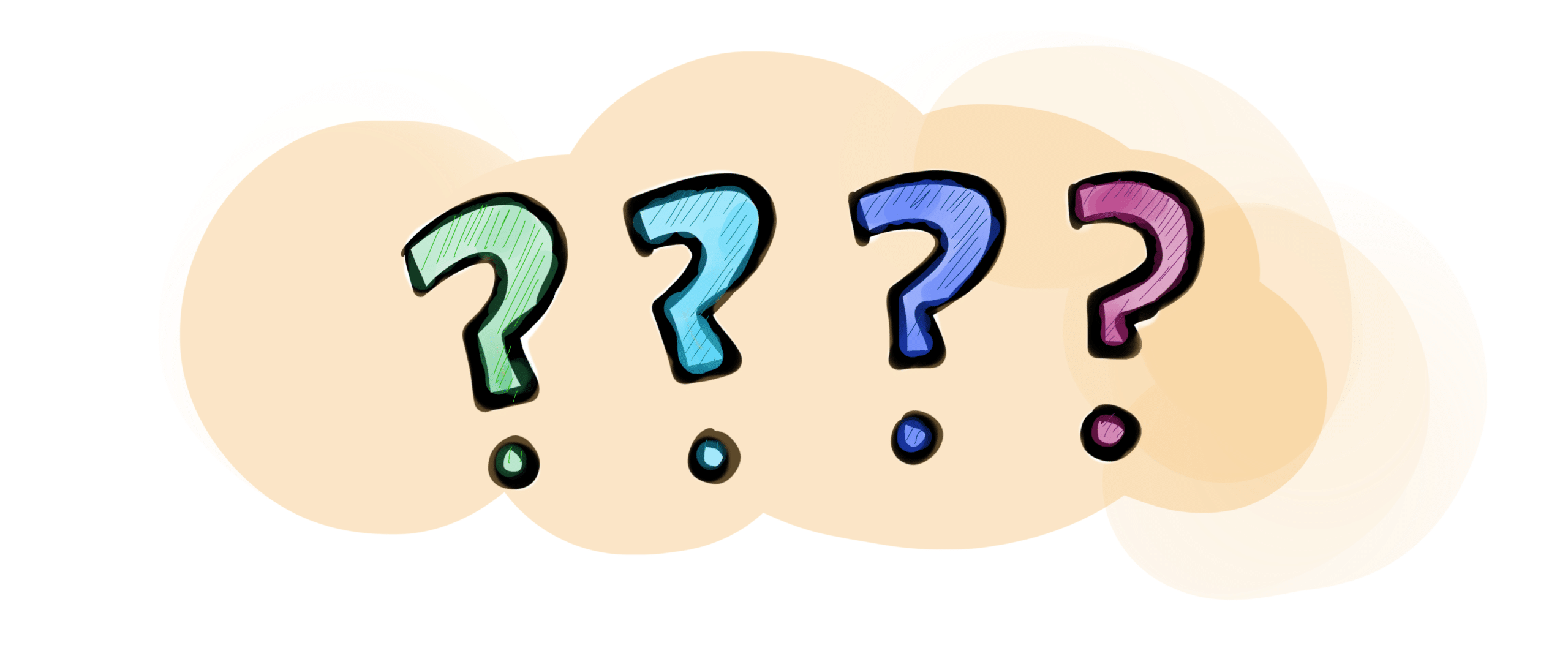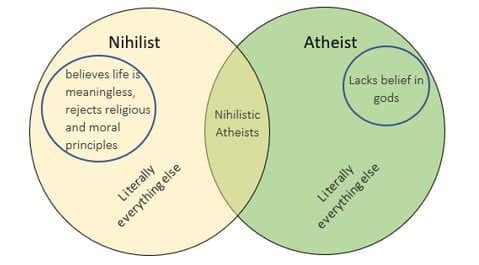Death – the ultimate truth of “Life.” Contradictory? Not quite. Well, that’s what we have been told and taught about since childhood. That Death is inevitable.
As are our sufferings and misery. So, if to live is to die ultimately, what is the point? What is the purpose? If you have had these questions bogging down your mind for years, this article on “Optimistic Nihilism” might be worth the read and your time.
Now, before we get into straight-up facts about Optimistic Nihilism, aim to keep an open mind. The most fascinating aspect of any philosophical theory is that nothing is absolute. It depends upon the interpretation and perspective of an individual where there is no standard for right or wrong.
The same applies to this topic, so before you brush off the very term itself as an oxymoron, wait till you read this out and understand why it is termed the way it is.
What is Nihilism in Philosophy?

Before we decode the proposition of Optimistic Nihilism, it is important first to fully grasp the meaning of what nihilism is. Or, more specifically, what is nihilism in philosophy?
In simple terms, nihilism signifies the rejection of all existing social, moral, and religious principles because all of it (including Life) is meaningless. Nihilism in philosophy strengthens and supports the doctrine that life is meaningless.
Just like the ever-expanding Universe (and multiverse), Life too is a void, and after wearing away of the physical body, our existence becomes a void too.
We cease to exist after Death. Hence, all the achievements and experiences we gained go away, as well as the insults and torment. There is no truth beyond an all-pervading emptiness.
That is, all of what we go through is meaningless and constructs our minds and societal norms.
Modern science has proved with practical examples that the human mind can alter reality. Hence, there is no such thing as “the Ultimate reality.” A change of perspective bends reality so you can conform one object to another.
If this is true, the alternate explanation that neutrality is the only constant is also true. There is no specific and no constant. It is all a variable, and the only doctrine substantiating this ever-changing concept of Life is “Nihilism” – the fact that nothing is significant; all of it is pointless.
Nihilism: A Terrifying Thought
We bet the above paragraph explaining “Nihilism” seemed dark and complicated for most of you. It is fine. Because, honestly, that was how it was designed to be since its inception.
Friedrich Nietzche considered the father of modern nihilism, attributed negativity to the concept. In his book, “Beyond Good and Evil,” he criticized the standing social conventions, thereby bringing into light the concept of Nihilism.
However, he also stated that Nihilism could destroy a set pattern of administration, thereby unleashing chaos and dishevelment, pushing nihilists toward the path of self-destruction.
Only a handful of them could emerge glorious from the negative path and use the notion of Nihilism to create a positive change in their lives. He termed this handful of people as “Ubermensch.”
One could argue that the birth of “Optimistic Nihilism” takes its roots from this off-shoot of the ideals of a Nihilistic. Whatever the origin, Gen Z has updated the grim and dark ideation of Nihilism to a more positive one, and that is where Optimistic Nihilism comes into play.
Instead of creating a stir and promoting violence and misdeeds, it creates a bubble of security and evolvement of the self if harnessed properly. We will discuss this not-so-pessimistic ideation of Nihilism in this article so you know what the hype about Optimistic Nihilism is all about.
What is Optimistic Nihilism?

Now that you have grasped the basic concept of Nihilism let us dive into the meaning of Optimistic Nihilism.
While we earlier discussed that Nihilism loosely translates to the fact that “Life and everything related to it is meaningless,” and it can sound depressing and outright negative, there’s a vast expansion lying beyond this simple translation.
So basically, Optimistic Nihilism also emphasizes that life is inconsequential and purposeless; it adds the perfect twist to the fact. That is because it has no purpose; we can create our own!
Life is like a blank canvas, and you can make whatever you want out of it! You can be whoever you want to be, you can dream whatever you want to dream, and you can (and should) explore all possible possibilities without losing out on anything if you fail at any. Why?
Because, of course, there was nothing since the beginning that you HAD to achieve.
And whatever you were told since childhood was mere conditioning by superiors who thought they had absolute control over you! They didn’t know any better. They had a basic set of ideas regarding a basic set of premeditated standards, and all that, again, was spoon-fed to them.
But you know better now, don’t you? So now, it’s up to you to abide by the directives that you were habituated to since the beginning or live life on your terms. All of it starts making sense now.
Optimistic Nihilism and the Society
To date, you have known that “pain is inevitable, suffering is optional.” With Optimistic Nihilism, the mind shift tells you that with nothing being important in Life, the statement that you must experience pain and suffering to achieve and win in Life is not something you need to take to heart.
That is, you don’t need to “achieve” anything to make a name for yourself and torment yourself through unnecessary misery. While this may sound to be a very shallow interpretation of Life, here is how you can also view it. You exist just because you do.
And you matter just because you exist. You don’t have to prove your caliber and capabilities to feel important and loved. You are important, and you deserve to be loved because you are alive.
Stressing the fact that nothing matters, Optimistic Nihilism takes the concept a notch further by rationalizing the fact that you can and should do what you like to do instead of letting society dictate what you should and what you should not.
It lets you take control of the reins of your life instead of toxic cultures and misconceptions from the past taking over. It allows you to progress in Life and move on without brooding over the apparent “mistakes” you made because, again, they don’t matter either!
An Insight Into the Tenets of Nihilism
Before we progress further toward whether the culture of Optimistic Nihilism is healthy or not, these are a few facets of Nihilism that you should know before concluding the above statement.
In the coming section of the article paragraph, we will briefly explain the main theories of Nihilism, along with a brief overview of the connection between Nihilism and Atheism.
1. Existential Nihilism

Existential Nihilism states that the codes of conduct imposed on communities are baseless and hold no absolute value. They are works of the human mind, and there is no real value to them.
Modern Nihilists take this as a positive sign because they are free to carve out their paths and create of their own free will. There is no impedance for creators and artists who can magnify their understanding and perception of Life on a larger scale.
Existential nihilists of the 19th and 20th centuries dreaded that, without a proper judiciary system, society would someday become extinct. Crimes could increase because, of course, “nothing is right or wrong.”
2. Cosmic Nihilism

This could contribute to a grave aspect of Nihilism. It emphasizes that the endless Universe should be a constant reminder of the inconspicuousness of human life (or any life for that matter).
We are just a speck of dust in the wide, vast emptiness. Hence, the fact that we consider that the Universe sends us signs is vague because it is completely disinterested in us.
Why would it not? It is unintelligent and apathetic to the woes of human suffering. The Universe itself is non-living. So, being a living matter in a huge web of non-living mass is a trap. Naturally, the vastness that may seem alluring sometimes is nothing but a mere illusion of mass and matter.
3. Ethical Nihilism

“Wait, what? So, you classify actions and reactions as “Right” or “Wrong?” is probably what an ethical nihilist would question. Ethical Nihilism defines no such thing as right and wrong or good and bad.
You do something because you want to. An ethical nihilist could fall into either of the three classifications as described below.
- Amoral: Rejects all moral principles.
- Egoist: One who is interested only in their interests
- Moral Subjectivist: One who decides the value of an incident (whether right or wrong) depending upon the nature and mode of the incident. That is, they are open to using their intellect and free will to accept or reject a theory.
4. Epistemological Nihilism

Epistemological Nihilism construes the fact that we can conclude no fact. That is, we do not know the absolute truth about anything. And we will never know.
Whether the Earth was created by the will of a supposed “God” or whether the particles in space collided randomly to create a huge ball of fire that ultimately cooled down and became suitable for sustaining life is something that will be open to interpretations.
And so will every other theory, doctrine, and law. Epistemological Nihilism is open-ended, allowing and pursuing people to question facts and explore to find the answers for themselves.
In the end, different people may come up with different answers, and each answer would be respected and valued because, “Yes, it could be this way.” In simpler terms, this category of Nihilism promotes permutations and combinations in terms of choices without judging any.
Nihilism vs. Atheism

While Atheism denies the existence of a supernatural higher power, commonly referred to as “God,” Nihilism denies any and every principle and theory.
Atheism does not necessarily defy the necessity of rules and regulations for individuals and control over them; Nihilism does exactly that. In broader terms, an atheist may or may not believe in good deeds and bad deeds. For a nihilist, (usually) these things won’t matter.
Atheism and Nihilism are not two sides of the same coin. Rather, they are two different coins altogether. Nihilism indeed holds the ideals of Atheism at its core, but it also imbibes other notions unrelated to religious beliefs.
Hence, Nihilism vs. Atheism could be imagined as a Venn diagram where the circle of Nihilism protrudes into the circle of Atheism. Still, Atheism holds nothing in common with Nihilism.
Is Optimistic Nihilism Contradictory?
This question is common and for the right reasons. You cannot just ignore Nietzsche’s statement, “God is dead. God remains dead. And we have killed him. How shall we comfort ourselves, the murderers of all murderers?
What was holiest and mightiest of all that the world has yet owned has bled to death under our knives … what festivals of atonement, what sacred games shall we have to invent? Is not the greatness of this deed too great for us? Must we not become gods to appear worthy of it?”
Through this verse, Nietzsche does not indicate the presence of a spiritual entity or a physical God but the presence of the “fear” in the hearts of men that made them differentiate between right and wrong. According to him, the moral implication made humans “human.”
With the doctrine of Nihilism that propounds the lack of all forms of jurisdiction and purpose, humans would be pulled into the vortex of solipsistic delusion. Violence and transgression would become the norm, causing the downfall of society.
People would fight the government without any motive other than “everything is meaningless,” leading to a huge loss of life and property. Finally, they would succumb to unfathomable helplessness by committing suicide, as we have seen many famous nihilists do, including Chester Bennington, Kurt Cobain, and Alexander McQueen.
After all, how many nihilists can survive through the initial stages of negativity before they can rise like a phoenix called Ubermensch?
Optimistic Nihilism is More than An ‘Oxymoron’
Contrary to what you may think, Optimistic Nihilism is not an oxymoron if you understand its essence. Unlike its counterpart from the bygone era, Optimistic Nihilism is the “sunny side” of Nihilism in general. It does not encourage or propagate violence and dismember the values and principles of someone else’s belief.
Instead, it focuses on making Life happier for themselves by encouraging them to find their own meaning in Life and living! Sounds simpler now? The doctrine of Optimistic Nihilism asks you to view your Life as a blank slate.
At the same time, it hands over pencils, erasers, coloring pens, and crayons, so you are free to draw, color, create, and even erase your own choice of imaginary vision.
That is, it allows you to portray your creativity without worrying about the consequence of whether it would be accepted or not, whether it would fit into the standards of other “painters,” whether it would make sense to others, or even whether others would like it or not.
The world is your oyster, and all painting tools are in your hand (and control) for you to make the statement come true.
It helps break down the bigger complexities of life and enjoy life in the present. How? Because the big problems don’t literally exist. For example, let’s say you are scared of getting fat and are always worried about how much you eat and what you eat.
The reason is some incident from the past that made you feel unattractive. With Optimistic Nihilism, you don’t need to worry about looking a certain way because the concept of “an ideal shape” is meaningless.
So now, you can enjoy that last slice of pizza and the ice cream tub while being a couch potato on a rough day!
Optimistic Nihilism and Depression

Some philosophists attribute the alarming surge of mental health issues among Gen Z individuals to the trending concept of Optimistic Nihilism. According to them, without a lack of purpose and meaning in life, they become wary of being alive and try to find solace in drugs and addiction. They feel lost and fall into the clutches of depression.
That being said, while this statement could hold for traditional Nihilism, Optimistic Nihilism does the exact opposite. Without an existing meaning, Optimistic Nihilism encourages you to find the one FOR YOU.
Without an existing reason to live, it encourages you that you have no absolute reason to feel belittled. Your only reason could be to pursue happiness, joy, love, and cherish relationships. It constantly motivates you to engage in one activity or the other, the sole reason being to add a new meaning to your meaningless existence.
It makes you restless and hungry to seek things that bring you pure joy instead of promoting hedonism. Imbibing the mantra of Optimistic Nihilism could help you in the battle against depression! Of course, it does not replace a mental health professional, but it can surely be an additional guide.
Final Thoughts
Now that you have understood the different perspectives on Optimistic Nihilism, it is up to you to decide. The quote by Thomas Carlyle, “A man without a purpose is like a ship without a rudder,” surely holds immense significance in shaping one’s life. Without a sense of purpose, man cannot live.
The ones who do don’t live. They are in constant agony and are always complaining about why they are here. While Optimistic Nihilism derives its roots from Nihilism, it motivates you to focus on cultivating a goal for yourself and chasing it.
Hence, it solely depends upon how they would utilize the concept in their lives instead of labeling Optimistic Nihilism as good or bad. What is your take on this? Do you want to teach Optimistic Nihilism in your life?
Whether yes or no – why? Let us know your answers in the comments.




